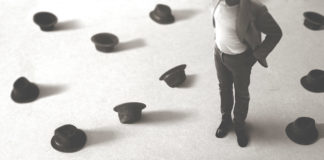Looking back on small acts of great kindness
This article contains stories of kindness, courage and generosity. By their simplicity they prove that all it takes to do good is a heart that is open to the needs of others.
The rule of law
For the average punter, rugby league had its beginnings in a school at Rugby, England, when one William Webb Ellis, “with fine disregard for the rules of football as played in his time at Rugby school, first took the ball in his arms and ran with it, thus originating the distinctive feature of the rugby game.”
How to encourage others
What if we weren't allowed to use more than 140 words a day? If we entered this game, among the useless words we would give up there would probably be words that convey encouragement too. The sad irony is that we use too few words of encouragement anyway, although the emotional and relational benefits are too important to neglect.
Everything natural is good. True or false?
There seems to be an obsession with the word "natural." We look for it everywhere and, if necessary, are willing to pay more for products deemed natural. If this were not the case, there would probably not be so much emphasis on advertisements and product labels that show the products' natural qualities.
The only death that can be avoided
"If there is anything more heartbreaking than a body perishing for lack of bread, it is a soul which is dying from hunger for the light." (Victor Hugo)
Have it your way
“You can have any colour you want, as long as it’s black,” Henry Ford famously said, and the modern mass production revolution began. Today, however, you can customise almost anything. You can blend your foundation to match your exact skin colour. You can design your own shoes; you can personalise your car, your suit and even your M&Ms.
Reading for continuous growth
"The acquaintance with a single good book can change a life." – Marcel Prévos
The late gospels and apocryphal Christianity
It was the first time most Christians had heard of the Gnostics— communities of Christians who lived between the 2nd and 4th centuries and whose scriptures and spiritual beliefs bore little resemblance to what is now considered traditional Christianity.
Domestic violence can be a precursor to suicide
Many times, we don't even know their name or story until they make the news. We might judge them for being too weak to break free from an abusive environment, but we know too little about the terrifying impact domestic violence has on women's health and well-being.
Appeal to popularity. What explains the popularity of an error?
When we consider that a conclusion is founded only if a lot of people consider it true, we fall into the trap of the argumentum ad populum or the appeal to popularity.
The (un)expected Messiah
“God's viewpoint is sometimes different from ours—so different that we could not even guess at it unless He had given us a Book which tells us such things.”[1](Corrie ten Boom)
Is it monotonous to be monogamous?
The possibility of completely rewriting the rules by which we organise our lives has always captured people's imagination. However, such a reorganisation has materialised, at best, in the pages of a philosophical book and has remained, for the most part, a utopia. But there are exceptions, of course.
We write the future ourselves: an overview of Biblical prophecy
The Bible, a prophetic book par excellence, is often misinterpreted. Its prophecies can seem fatalistic, or fear-mongering. But, when understood correctly, Biblical prophecy more than unravels the future—it also provides us with a clearer perspective on the present.
Biblical kings and controversial archaeologists
Traces of the ancient kingdom of Israel occasionally emerge from the dust of the Holy Land. These discoveries are immediately and inevitably followed by fierce controversies among archaeologists. As amateur spectators, Christians are eyewitnesses to these debates and, in one way or another, their faith is shaped by them.
Choosing happy
Paul was imprisoned by the Roman Emperor. He was on Death Row. Every morning, when he opened his eyes, he didn’t know if this day would be his last, and whether he would be thrown to the lions or burned.


























